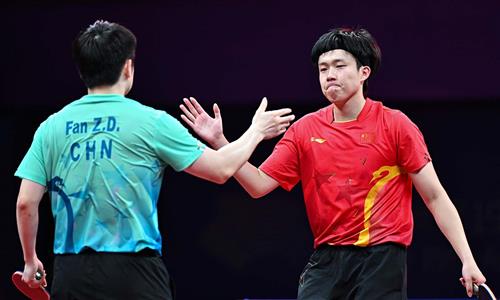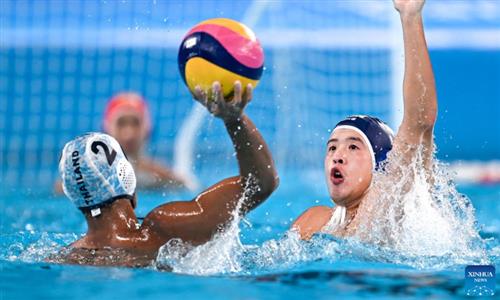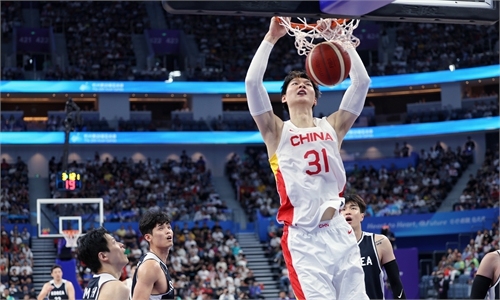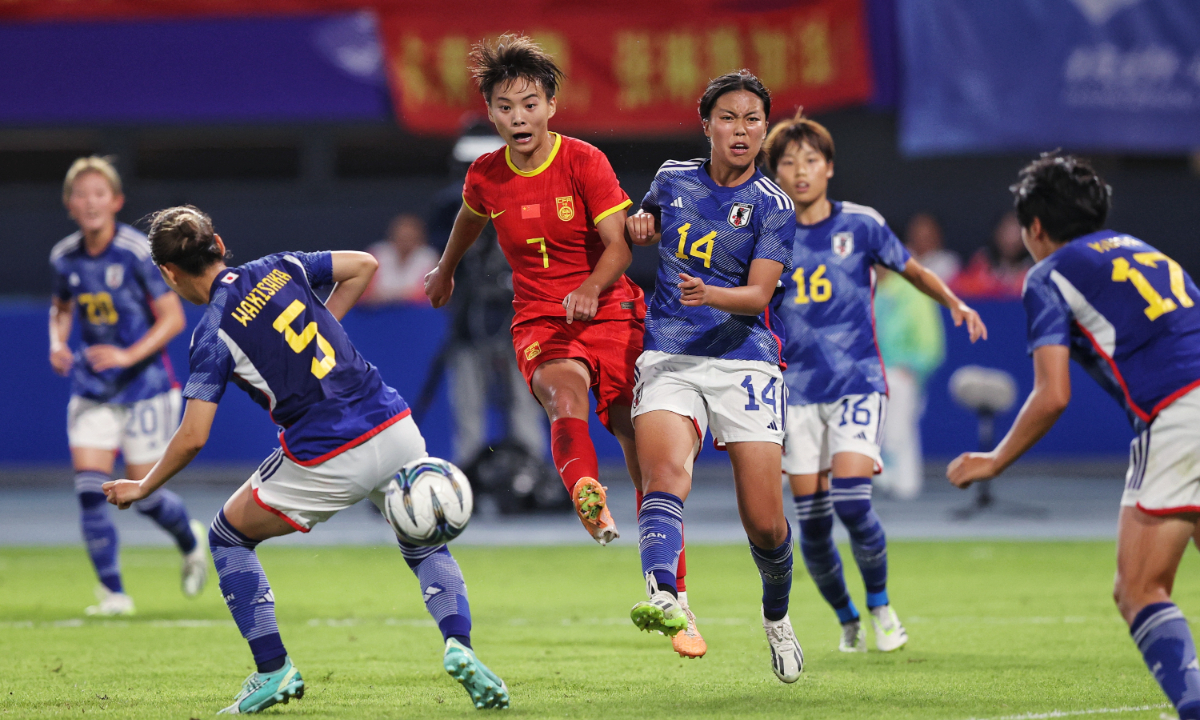
Photo:Cui Meng/GT
A highly-anticipated Chinese women's soccer team failed to edge out a very young Japanese team to make it to the final in front of an enthusiastic home crowd on Tuesday. Although the Chinese team got close to an equalizer, the team's head coach Shui Qingxia said that the game itself revealed more problems than the final score.
From the very beginning of the match, China dominated possession and attacked in Japan's half. However, the attack did not produce results, and instead, Japan took the lead first through a sharp counterattack in the 12th minute. But just eight minutes later, China equalized the score with a corner kick attack by Wang Linlin.
Inside the stadium, the home crowd cheered the Chinese women's soccer team on without any interruption. However, to everyone's surprise, Japan scored the next three goals in 12 minutes through similar counterattacks, converting all of their four attempts into goals. China faced a three-goal deficit by halftime.
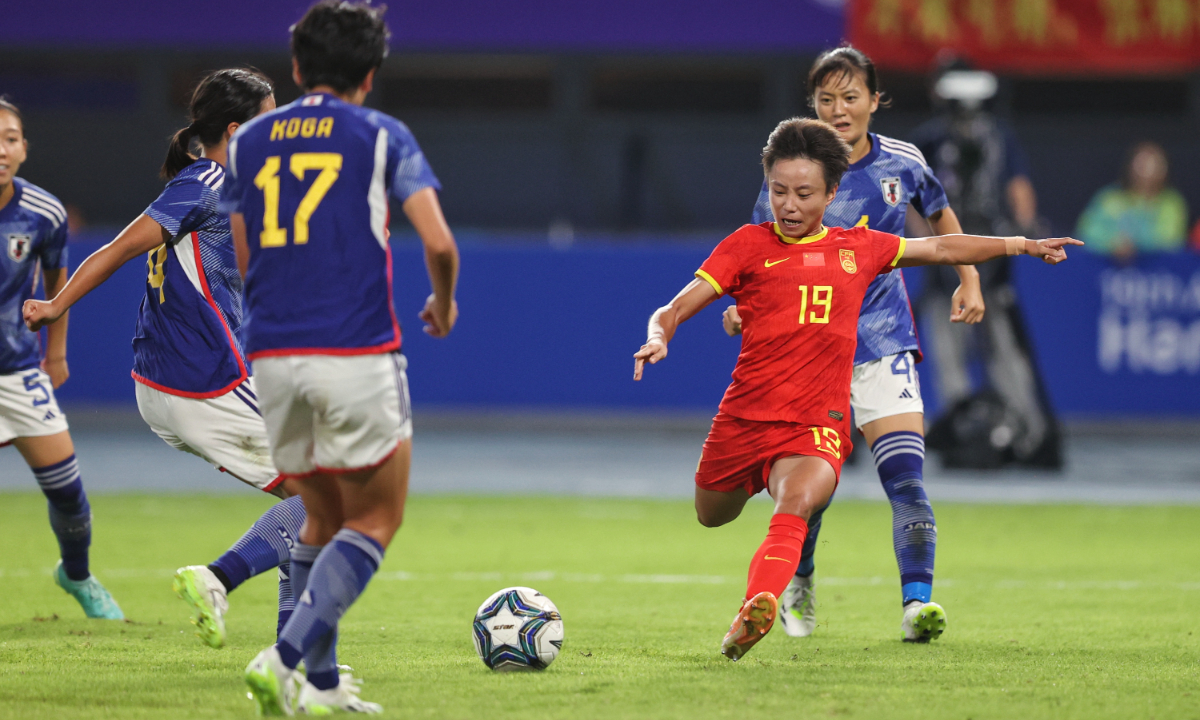
Photo:Cui Meng/GT
After the halftime break, China geared up with renewed attacks, winning consecutive corners. With cutting edge in their corner kick attempts, Zhang Linyan and Yang Lina scored two headers in the 55th minute and the 60th minute to make it 4-3, igniting the crowd once again.
The Chinese team then had several chances in the final minutes to find an equalizer, but they had to settle with the defeat, propelling the Japanese team for the gold medal contest.
Since taking the crown in the Asian Cup in February 2022, the Chinese public held high hopes for the women's soccer team, especially with their breathtaking comeback from 0-2 to 3-2 in the final which served as a major source of positivity for the Chinese people.
The team did not deliver their best performance in the 2023 Women's World Cup, failing to survive the group stage. Nonetheless, the general public still eyed a potential gold medal run at the Hangzhou Asian Games.
The team was no doubt a tournament favorite, especially as the Australian team does not participate in the Asian Games and as Japan decided to send a young team while the Chinese team retained most of their World Cup line up.
Following the narrow defeat, Chinese head coach Shui Qingxia took responsibility.
"We were nervous and played tight in the first half. I didn't expect it [conceding four goals] in the first half," Shui, a 7-time Asian champion during her playing career, told the Global Times at the post-match news conference. "But my players showed their fighting spirit [in the second half]. If we could do better in details, the results would be different."
"The Japanese team did well. We should learn a lot from the failure," she said, pointing out that although the final score was only one goal down, that difference can say a lot.
Japan's roster featured a total of 14 young players who were born after the year of 2000. Japan's head coach Kano Michihisa spoke highly of his players. "For most of my players, it's the first time for them to play at the international competition. We hope they can learn experience so that they can contribute more to the national team in the future."
On Friday, the Chinese women's soccer team will face Uzbekistan for the bronze medal, a team they previously cruised past 6-0 during the group stage on September 28.
